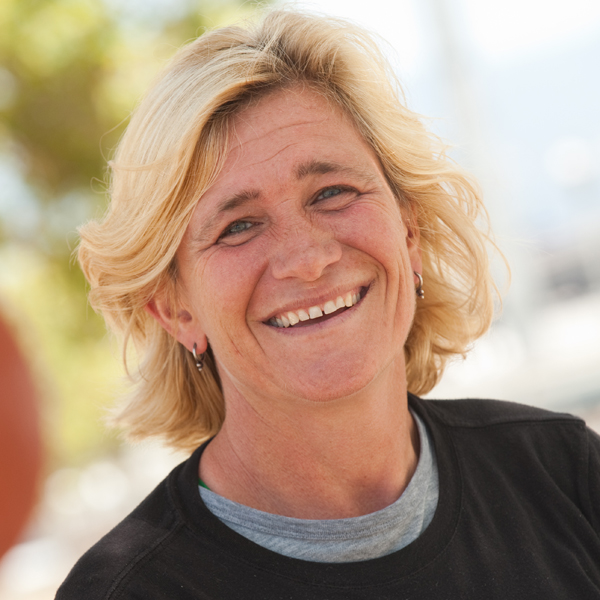
ALPA PROD/Shutterstock.com
.
Google recently explored its own practices to identify key indicators for employee engagement and effectiveness. Google’s Project Aristotle found that successful teams shared two key characteristics. First, they found an equality in dialogue, meaning the distribution of “talk time” happened naturally instead of hierarchically. Second, team members had a higher-than-average ability to read one another’s emotions based on facial expressions.
In my experience, the best way to create an organizational culture that supports both these indicators is to bring play into the workplace. In fact, I believe that Playworks has survived and even thrived through 21 years of challenges and opportunities because play permeates our organizational culture.
Why Play at Work
 Playworks works with schools to build healthy school cultures through play. We do this through both direct services and training. This year we will reach nearly one million students at 2,000 schools. Researchers have closely evaluated our impact and play’s extraordinary ability to bring out the best in kids. Less visible is how play brings out the best in our staff.
Playworks works with schools to build healthy school cultures through play. We do this through both direct services and training. This year we will reach nearly one million students at 2,000 schools. Researchers have closely evaluated our impact and play’s extraordinary ability to bring out the best in kids. Less visible is how play brings out the best in our staff.
The same programming that we bring to kids — the same emphasis on play as a tool for promoting trust and rapport — is also an important part of how we operate in the workplace. For example, we have a foursquare court in our office where staff can play when they need to take a brain break. Getting out from behind our screens to play together helps us practice greater empathy, better understand our peers and sharpen our social and emotional skills; exactly what play does for children, too.
The research on play is clear: Play is singularly effective in contributing to our abilities to make decisions, work collaboratively, self-regulate and practice self-awareness. This is not to say that all play is inherently constructive or that empathy naturally springs forth when people are playing. Intention and norming by leadership are essential.
Leading Through Play
There are few safer ways to look at a power structure than through play, and few easier ways to understand a person’s character than through playing. As the founder and CEO at Playworks, I am aware that how I show up to play has an enormous impact beyond the more obvious minutes spent. People are watching to see how competitive I am and if I am a good sport when I lose. They are watching to see how I respond to other people leading, doing things differently than I might and making mistakes. Am I playing safely? Am I paying attention? Am I showing up on time and staying present?
Organizational culture is the sum of the values and behaviors that contribute to the unique psychological and social environment of an organization. Play is an often overlooked opportunity to cultivate organizational values in a low-stakes, nonverbal, easy-access way. Through play, we articulate expectations, experiences, philosophies and values. The way I, and the rest of our leaders, show up during play has an important norming effect on our culture. By extension, play affects our productivity and performance as an organization.
Here are three strategies you can use this year to infuse a little play into your own organization:
First, start every meeting with a check-in question.
At Playworks we start every meeting with a random question. Check-in questions remind us of our shared humanity and the three-dimensional nature of all our lives. They also invoke play’s ability to help signal a transition and compel us each individually to be present in the meetings.
Once, I was presenting at a school district meeting where there were two board members who were known to really dislike one another. Before I started talking, I asked people to go around and say their name and first concert they attended. It turned out that both these gentleman shared Earth, Wind and Fire as their first concert. You could see the look of complete shock on both their faces that they had this in common. It didn’t change everything, but I heard from another board member later that they treated each other with slightly more respect and kindness thereafter.
Questions can be personal but are rarely particularly intense. Favorites include, “What was your first concert?” “What’s your favorite holiday food?” “What was your best Halloween costume ever?” “Favorite movie of the year?” Answers are quick, and you always have the right to pass.
Second, try silly brainstorming.
The idea that play contributes to creativity has been popular in Silicon Valley for a while. I spent a year as a fellow at Stanford’s d.school learning about and experimenting with design thinking, and I was constantly struck by how many parallels there were with Playworks approach. The use of games — often borrowed from improv activities — is integral to the design thinking process.
One of the things that I learned at the d.school was that when it comes to brainstorming, it really is about quantity and not quality. A playful way to encourage creative thinking is to start brainstorming with absurd parameters, like ideas for solving a problem that invoke the worst ideas for solving a problem, or solutions that would cost over $1 million, or solutions that are illegal. It is easy to say that there are no bad ideas, but actively pursuing them in a playful way can lead to some surprising collaboration and creativity.
We used those brainstorm questions when designing services for districts. Inviting principals into our process — and making it fun — helped us test our wildest and most conservative ideas on the fly. We came away from the exercise with new ideas for what districts really needed that we never would have thought of on our own.
Third, indulge in recess at work.
In addition to the foursquare court, we have a group recess at Playworks a couple of times a month. For organizations that work with kids, this is a great time to encourage program staff to test new games and activities with the administrative staff.
We also try to have a recess when someone new starts to introduce them to our culture. More recently, we also have recess whenever the auditors are here for their annual visit. Having the auditors is naturally a little stressful for the finance team, but including the auditors in foursquare, and watching one’s auditor play foursquare with intensity, somehow really changes the whole audit experience.
The important thing to remember is that, just like with kids, the goal is inclusion. It is important to modify games so that everyone can participate, and feels safe and like they have choice and voice in the process. Done right, these experiences can lead to a greater sense of commitment to shared goals, which will ultimately make your organization successful.
Jill Vialet is the founder and CEO of Playworks, the leading national nonprofit leveraging the power of play to transform children’s social and emotional health.






























